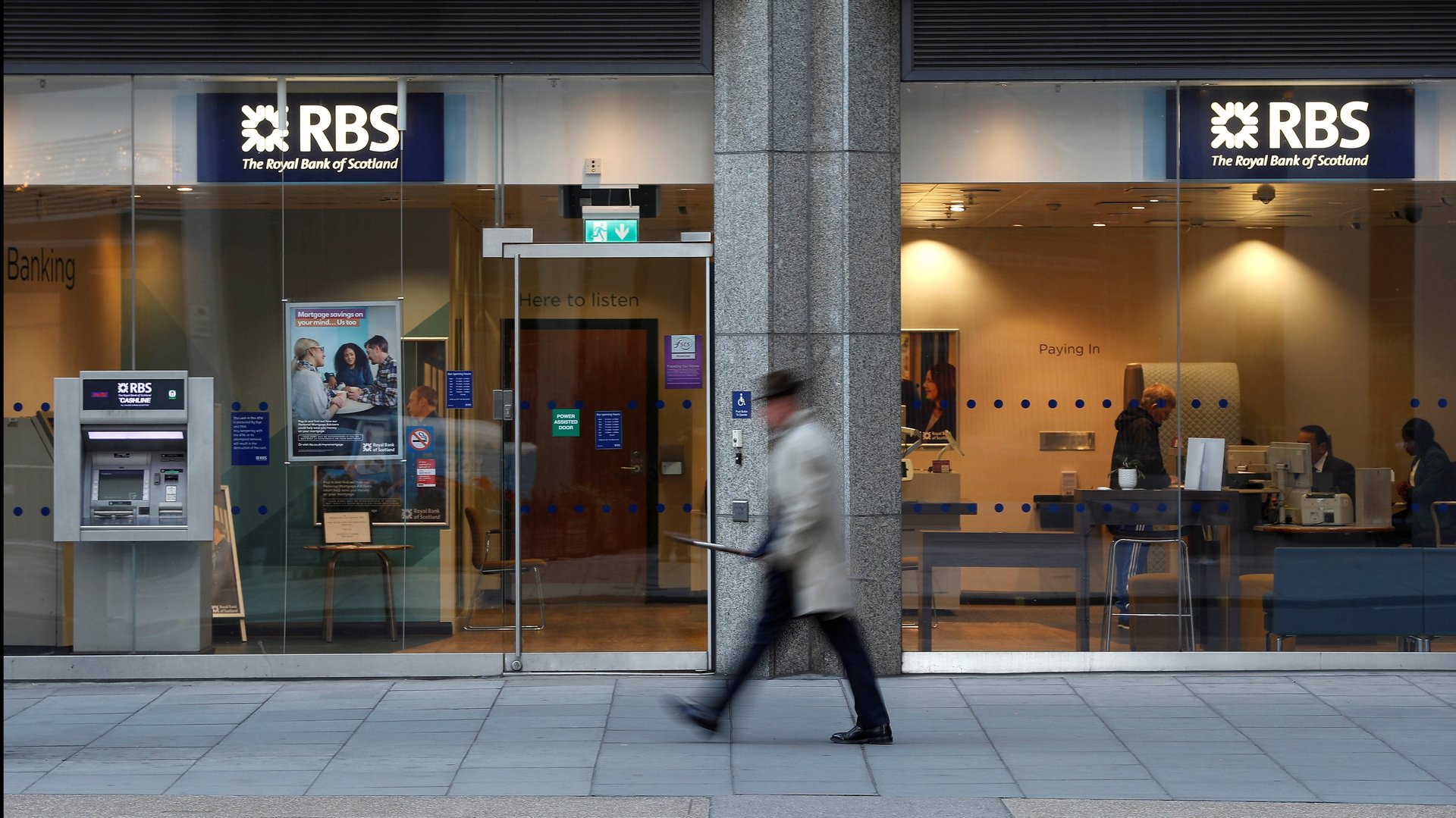The UK opened the door for Facebook and Google to start acting like banks
Starting Saturday (Jan. 13), the UK’s nine biggest banks, which service most of the population, will no longer have a lock on the state’s financial transactions.


Starting Saturday (Jan. 13), the UK’s nine biggest banks, which service most of the population, will no longer have a lock on the state’s financial transactions.
New rules that are part of a UK directive called Open Banking aim to make it easier to compare and switch UK banks. Financial institutions will have to share their customer data with other companies if customers give permission. That means third parties will also be able to make payments on behalf of customers, or manage their finances for them.
This opens the door for tech companies like Facebook and Google, which have been trying to break into banking without actually becoming banks. Both Facebook and Google have waded into payments in the UK with products like Pay by Messenger, which launched in November, and Google Wallet, where you can send payments via email.
With the new rules, Facebook could think about extending payments to WhatsApp as it has in other part of the world, allowing you to pay your roommate back for groceries within Facebook’s chat app, for example. And Google Pay could someday be used as freely as it is in the US, where users pay for travel via apps such as Airbnb, or buy goods in physical stores.
Previously, companies like Facebook and Google had to negotiate deals directly with banks in the UK to get access to account or transaction data when given permissions, which limited the opportunities for these kinds of products. Startups with less negotiating power needed to ask for your username and password, then log into your bank’s website and scrape it for information like your transaction history, Wired recently explained.
The new rules force the UK’s big banks—Allied Irish Bank, Bank of Ireland, Barclays, Danske, HSBC, Lloyds, Nationwide, RBS, and Santander—to put APIs in place that standardize and secure the release of customer data, so that it’s easier to share when customers allow it.
“Next time you need to send your friend a tenner, you’ll instant-message them the money, rather than opening up your boring bank app, fiddling about finding their bank details, authenticating yourself again and finally firing off the cash,” digital-financial consultant David Birch wrote in Wired UK this month. “You’ll just type ‘+£10’ in your WhatsApp chat.”
It would also mean that when you buy something on a site like Amazon, the retailer wouldn’t have to contact a third party to get in touch with Visa or Mastercard to take the payment from your account. It could cut out the middle men and take that payment directly from your bank account.
And it paves the way for products that could allow you to see all of your banking information in one place if you have accounts with multiple banks, or securely share all of your finances with lenders when you apply for a loan.
With the new directive, tech companies and startups could become real rivals to historic financial institutions.